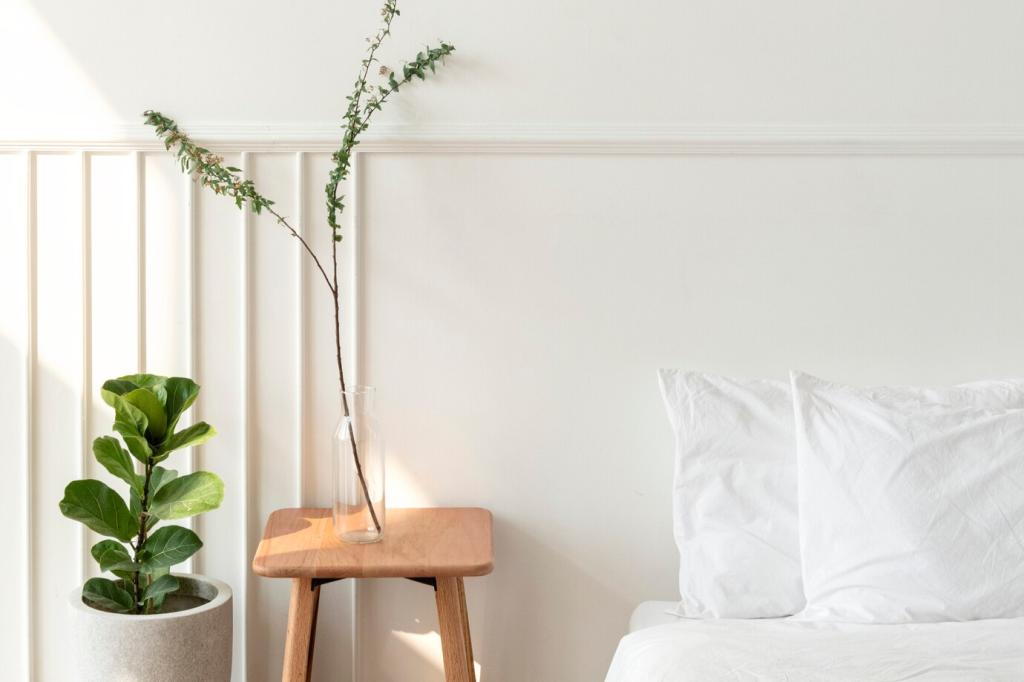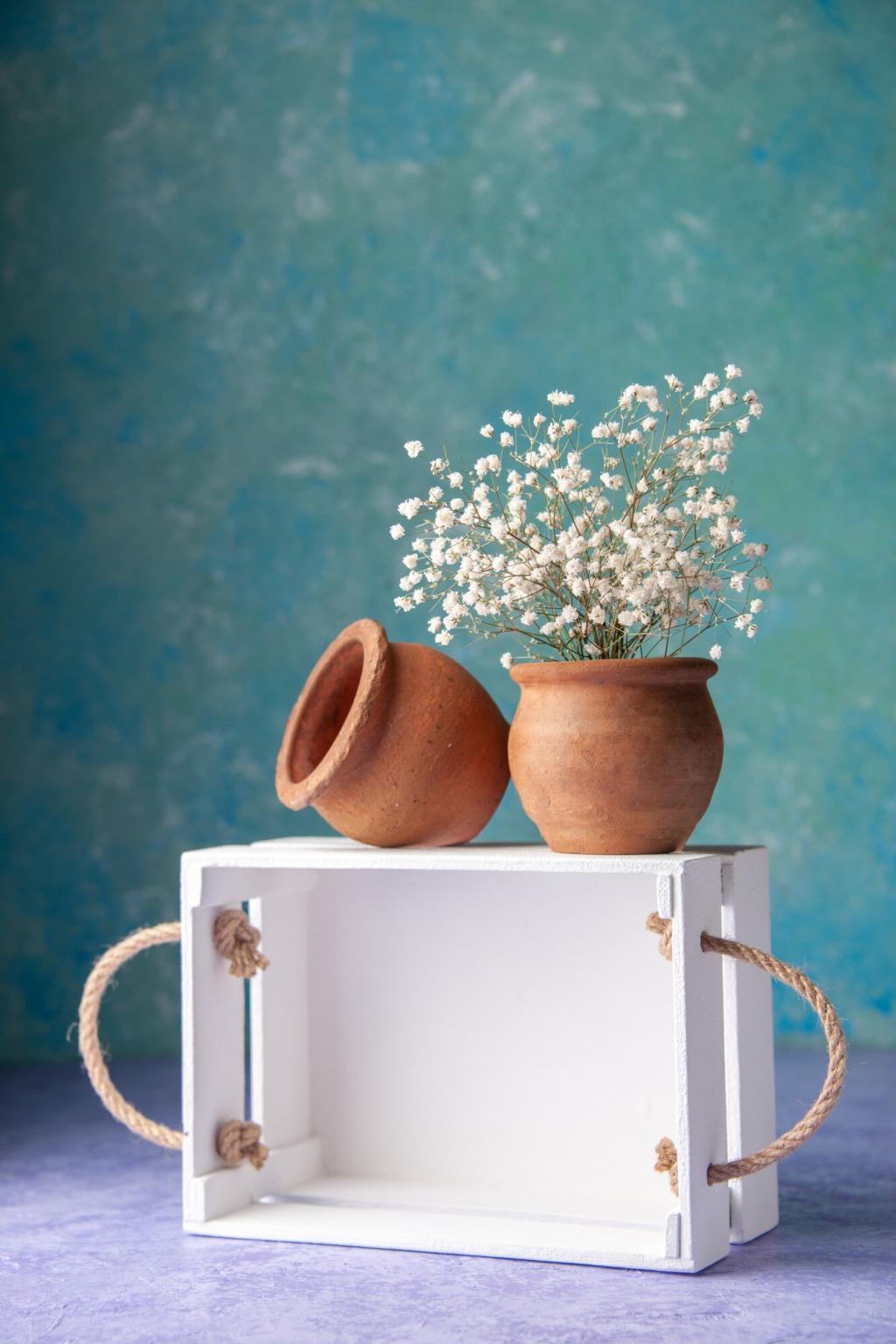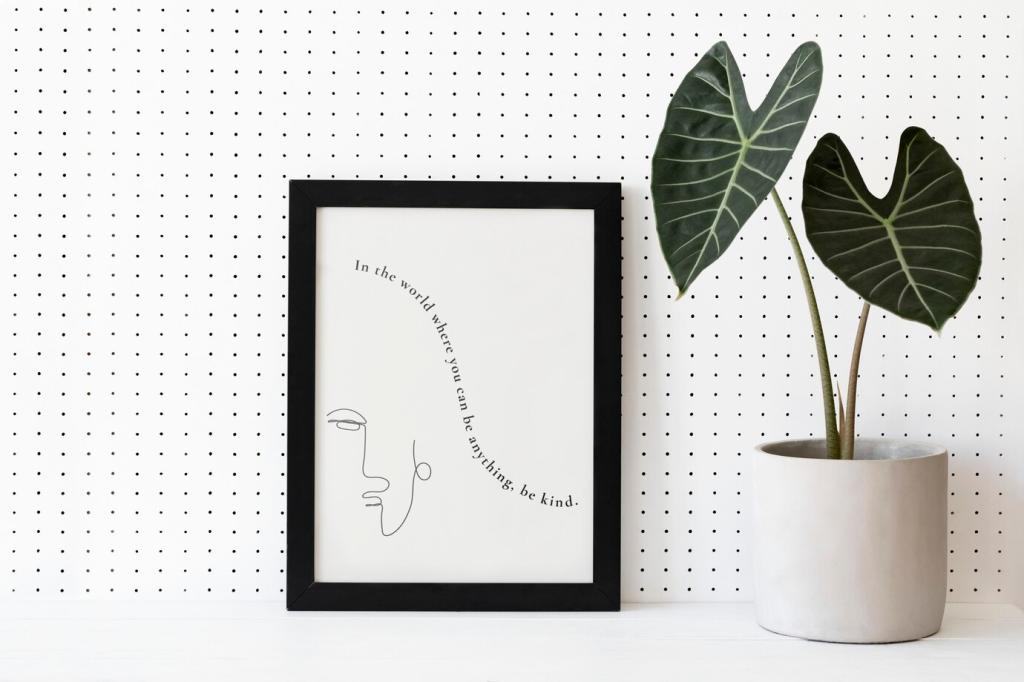Today’s theme: Incorporating Natural Elements in Minimalist Design. Step into calm, functional interiors where wood, stone, light, and living greenery bring warmth to clean lines. Join us, share your ideas, and subscribe for weekly inspiration.

Biophilic minimalism blends humans’ innate love for nature with disciplined simplicity. By prioritizing organic textures and daylight, we reduce visual noise while nurturing wellbeing, focus, and quiet delight in everyday rituals at home.
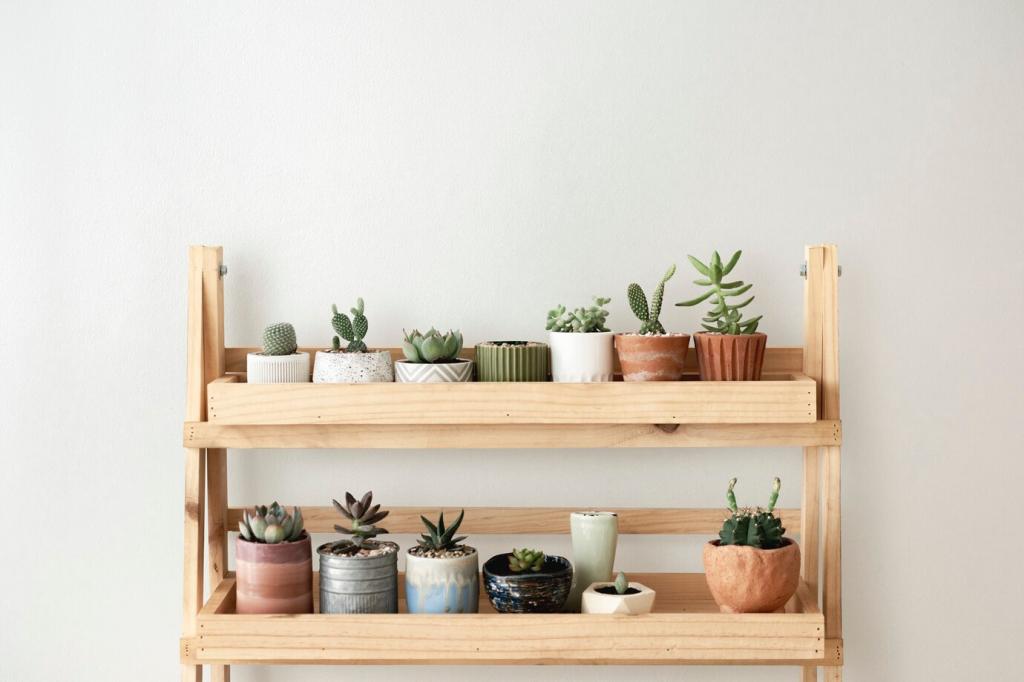
Minimalism does not mean sterile; it means intentional. Choosing one honest oak table over five trendy pieces invites tactile connection, ethical sourcing, and a room that breathes rather than shouts for attention.
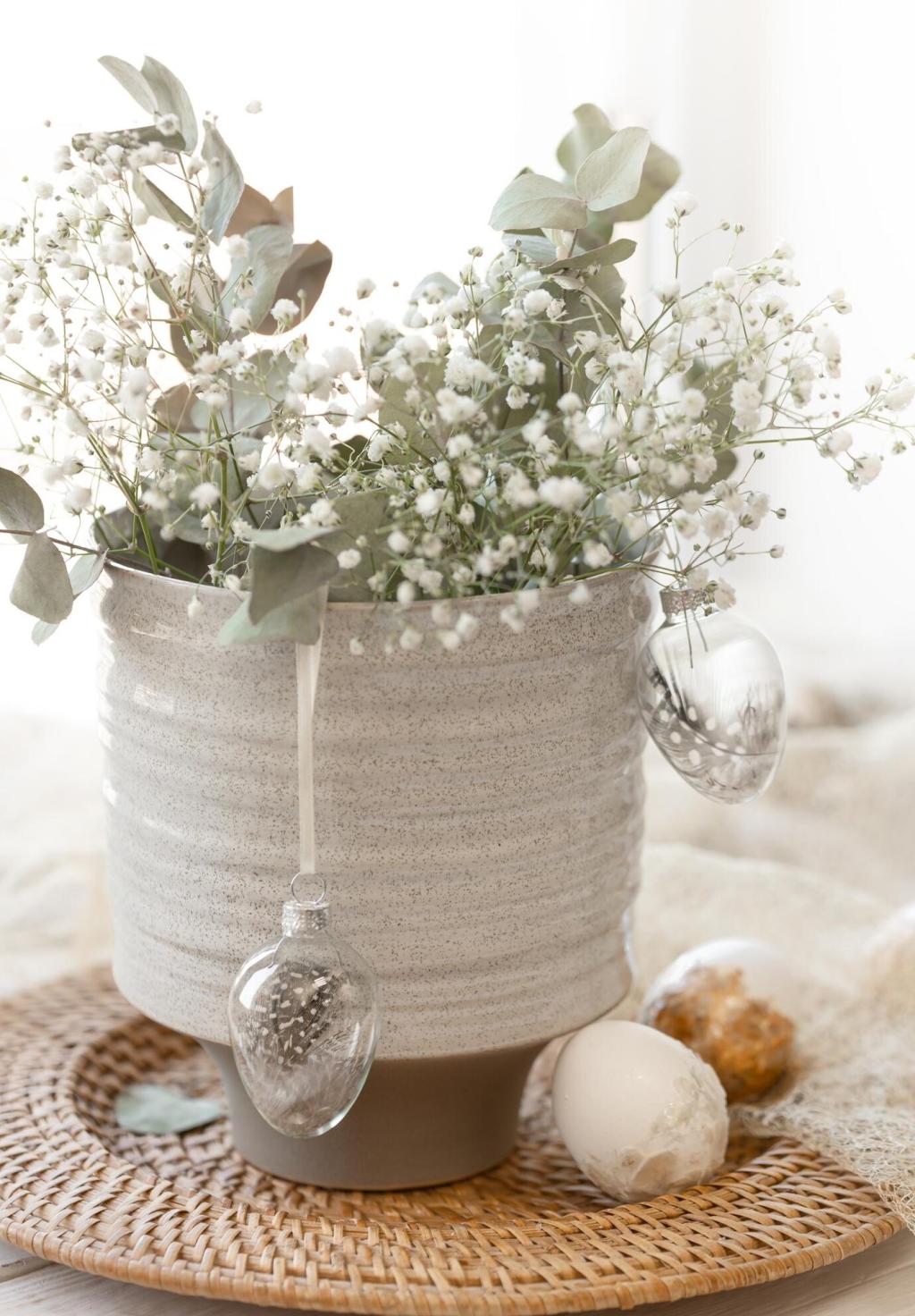
A reader replaced a busy gallery wall with a single beach-found branch. The shadows changed hourly, becoming a moving artwork. She now meditates beneath it, describing the room as newly alive.
Material Honesty: Wood, Stone, and Natural Fibers
Warmth of Sustainably Sourced Wood
Choose FSC-certified oak, ash, or walnut with matte finishes that age gracefully. One substantial wooden surface can anchor a room, offering durability, repairability, and a comforting, soft light reflection throughout the day.
Grounding Strength of Stone
Limestone, soapstone, or honed granite provide cool tactility and subtle veining that reads as visual calm. Keep forms rectilinear and edges softened, letting the mineral pattern become the quiet focal point.
Breathable Textiles That Feel Real
Linen, cotton, wool, and jute invite touch and regulate comfort. Opt for undyed or low-contrast weaves, simple hems, and generous drape to soften minimalist lines without tipping into decorative excess.
Designing for Daylight
Keep window frames slender, choose sheer natural fabrics, and clear adjacent surfaces. Allow light to skim textured plaster or wood grain so the sun paints the room differently every hour without extra objects.
Celebrating Shadow and Negative Space
Minimalism values what you leave out. Let a single ceramic vessel cast a gentle shadow on a pale wall; the interplay becomes art, offering rhythm without adding clutter or competing focal points.
Inviting Fresh Air
Cross-ventilation and operable windows complement the sensory calm of natural materials. A quiet breeze across linen curtains adds movement, scent, and softness that no decorative accessory can authentically replace.

Living Sculptures: Plants as Purposeful Forms
Choosing Forms That Complement Simplicity
Select sculptural silhouettes like a rubber tree, olive, or monstera in controlled sizes. One strong specimen reads as intentional architecture, while too many small plants quickly clutter the quiet composition.
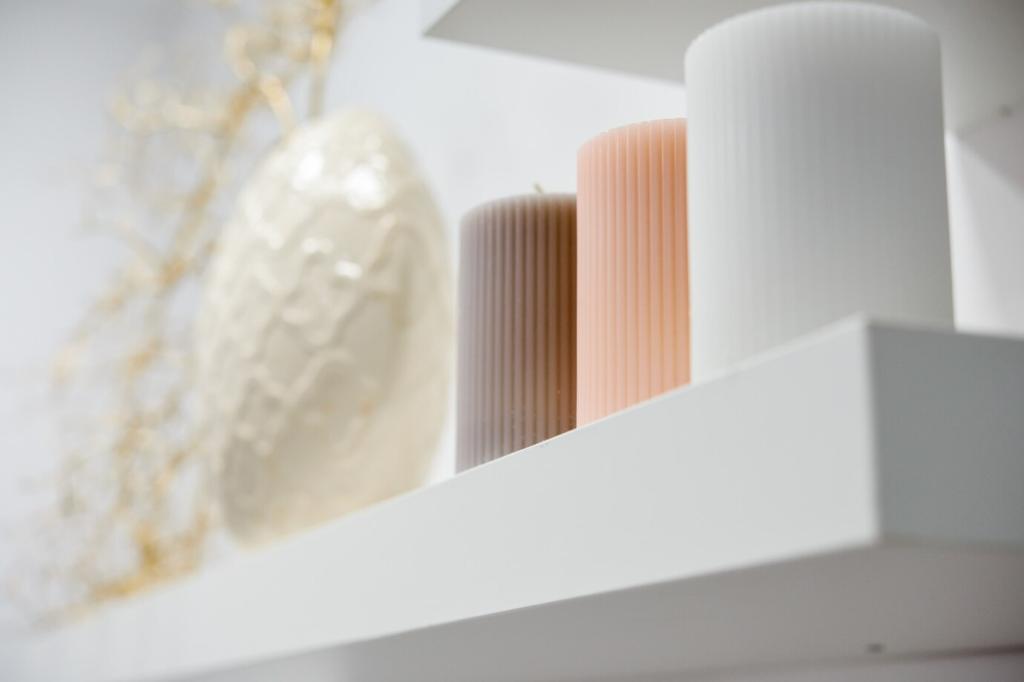
Color Restraint: Earth Tones, Whites, and Fresh Green Accents
A Neutral Base That Breathes
Soft whites with warm undertones, clay beiges, or gentle greiges allow grain, weave, and shadow to lead. Avoid glossy finishes that fight texture; choose mineral paints for depth and low sheen.
Green as a Living Accent
Let leaf color be the boldest hue. A single olive tree or fern grouping adds vitality and contrast without compromising the serenity that minimalism requires to feel focused and restorative.
Seasonal Adjustments Without Clutter
Swap a wool throw for linen in summer, or introduce a darker clay vessel in winter. Tiny, textural shifts sustain freshness while honoring the restrained palette you carefully curated.
Layout Discipline: Space, Proportion, and Purpose
Negative Space as a Design Tool
Leave generous breathing room around a wooden bench or stone coffee table. Empty floor and wall areas help natural materials command attention, turning ordinary pieces into sculptural presences.
Fewer, Multifunctional Pieces
Choose furniture that does double duty: a low oak console as desk, a stone stool as side table. Reduce total object count, but increase usefulness and tactile satisfaction in daily routines.
Aligned Proportions and Quiet Rhythm
Echo widths, heights, and margins across elements. Repeating a 60-centimeter module in shelving, art spacing, and rug borders builds harmony so textures and light, not clutter, create the desired drama.
